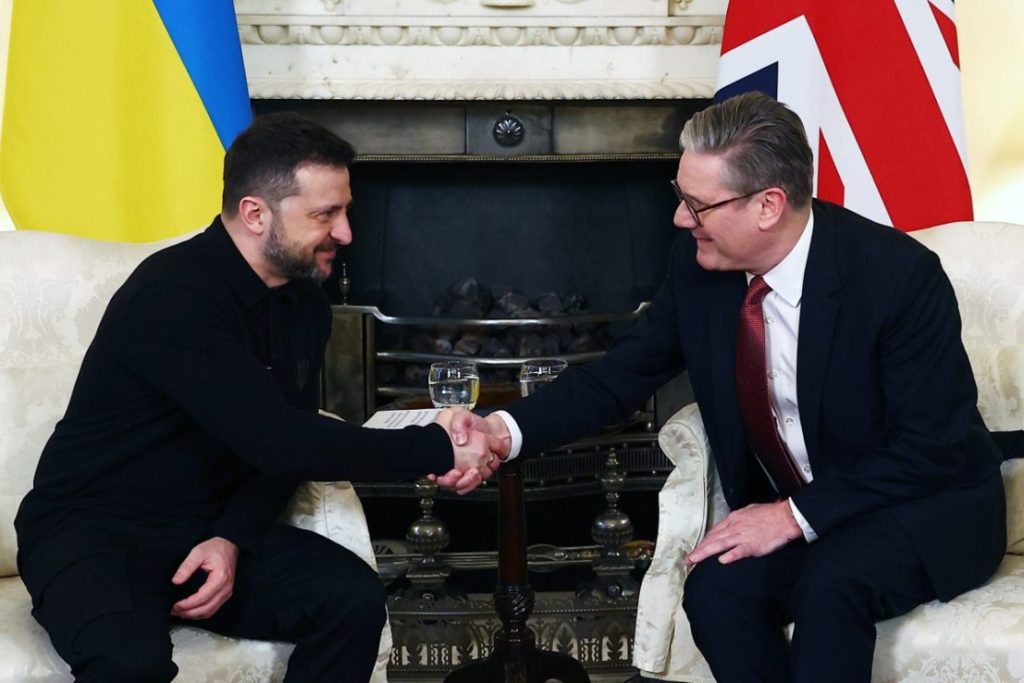Oil Prices Soar After Middle East Strikes – Ukraine Faces New Setback
Ukraine’s President Volodymyr Zelensky has issued a stark warning over the recent spike in global oil prices, blaming Israeli airstrikes on Iran for strengthening Russia’s war machine. The price of Brent crude jumped by as much as 7% in the aftermath of retaliatory strikes, creating a fresh headache for Kyiv at a time when Western allies are already grappling with competing priorities.
How the Price Surge Empowers Russia
Zelensky explained that every dollar increase in barrel price translates into millions more in revenue for Moscow. Russia, heavily reliant on oil exports, can funnel this windfall directly into its military budget. These extra funds enable Moscow to:
- Accelerate procurement of weapons and ammunition;
- Enhance maintenance and logistics for frontline units;
- Bolster research and development of advanced drone and missile systems.
“The strikes led to a sharp increase in the price of oil, which is negative for us,” Zelensky told reporters in Kyiv. “The Russians are getting stronger due to greater income from oil exports.”
Western Price Caps Under Scrutiny
In response to earlier price surges following Russia’s 2022 invasion of Ukraine, G7 nations imposed a cap on Russian oil. However, Zelensky criticised the lack of enforcement, arguing that loopholes allow Moscow to sell oil above capped levels, negating the measure’s intended pressure.
He signalled his intent to raise the issue directly with the United States. “In the near future, I will be in contact with the American side, I think with the president, and we will raise this issue,” Zelensky said, referring to President Trump. He hopes for renewed momentum on imposing stricter price restrictions that would curb Russian income.
Aid to Ukraine Diverted to Israel?
The Ukrainian leader also expressed concern that US military assistance earmarked for Kyiv might be diverted to bolster Israel’s defences, as tensions flare once more in the Middle East. Zelensky pointed to a shipment of 20,000 interceptor missiles, originally destined for Ukraine, which were rerouted to Israel to counter Iran-linked Shahed drones.
- Interceptor Missiles: 20,000 missiles withheld from Ukraine for Israel’s use;
- Barak-8 System: Israel’s air defense system, promised for Kyiv, was sent to the US for repairs but never delivered;
- Coalition Momentum: the “Coalition of the Willing” supporting Ukraine has slowed due to US ambivalence.
“For us it was a blow,” Zelensky admitted. “When you face 300 to 400 drones a day, most are shot down or go off course, but some get through. We were counting on those missiles.”
Reassurance Force and Security Guarantees
Zelensky has also revived the idea of a “reassurance force” – foreign contingents stationed in Ukraine to provide security guarantees. He suggested their presence could enable Kyiv to negotiate territorial compromises with Russia by offering a credible backstop, ensuring Ukraine would not stand alone if hostilities resumed.
“Their presence gives us the opportunity to compromise, when we can say that today our state does not have the strength to take our territories within the borders of 1991,” he explained. However, he stressed that such deployments hinge on clear commitments from the US and other coalition members.
Europe’s Role Amid US Uncertainty
With Washington’s support appearing volatile, Zelensky placed responsibility on Europe to fill any gaps. “Europe has not yet decided for itself that it will be with Ukraine completely if America is not there,” he said. Should the US fail to impose tougher sanctions or maintain military aid, the burden will shift to European capitals to step up their contributions.
Next Steps for Kyiv
To address this multifaceted challenge, Ukraine is pursuing:
- Diplomatic Outreach: Direct talks with US leadership on oil price enforcement and aid commitments;
- Alternative Funding: Seeking new revenue streams to offset Russian oil earnings;
- Domestic Resilience: Accelerating energy efficiency and advising citizens on consumption;
- Strengthened Alliances: Reinforcing the Coalition of the Willing and lobbying European governments.
As global energy markets brace for further volatility, Ukraine’s fortunes on the battlefield may hinge on the outcomes of these high-stakes discussions.
